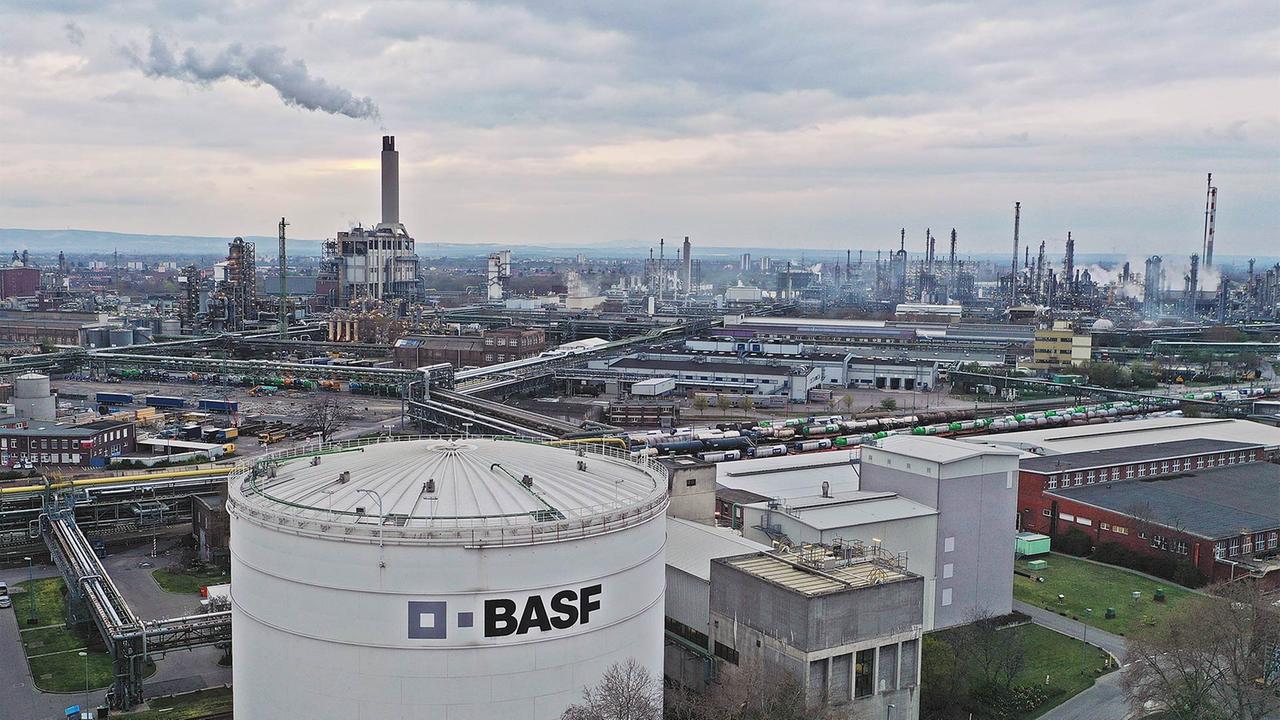analysis
The world's largest chemical company, BASF, is under pressure. Sales and profits have recently collapsed, and entire plants are being closed at the Ludwigshafen headquarters. At the same time, the company is investing billions in China.
“You can't imagine that this plant would suddenly be partially dismantled, partially closed, instead of expanding. It has always expanded,” says Fritz Hofmann, former BASF works council member in Ludwigshafen. For many of his colleagues, this was a shock. Hofmann knows what is at stake for the workforce. He worked at the main plant in Ludwigshafen for more than 30 years. At the turn of the year, around 38,700 people were employed there – 430 fewer than the year before.
Many employees are unsettled by the company's tough austerity measures and fear for their jobs: “Of course, you get the feeling that everything is going to or will come to China and that more and more jobs will be cut here,” says a BASF employee who is wondering what will happen to his job in the future.
BASF has stated in writing that it wants to “continue to invest in the maintenance, modernization and expansion of the Ludwigshafen site.” However, eleven production plants will first be closed, including a fairly new so-called TDI plant for the production of foams. The loss: around one billion euros. The plants at the home site are no longer profitable, according to BASF. However, it is assumed that the majority of the affected employees will be able to be placed in other positions in production and technology.
Beginning of the end of the German Chemical industry?
The chemical company says it made a profit everywhere last year, except in Germany. The board complains that energy costs are too high, there is too much bureaucracy and over-regulation. This is partly responsible for Germany becoming increasingly unattractive as a business location. The result: BASF is cutting costs and reducing jobs in this country. At the same time, the company is investing heavily in China – a country that is threatening to invade Taiwan.
Ten billion euros are being invested in the construction of a new mega-factory in southern China alone. In Zhanjiang, on an island off the coast, a factory is being built for basic chemicals that will later end up in hundreds of consumer goods. The giant factory is scheduled to be completed in 2030. Many in the region are hoping for opportunities as a result, as unemployment among young people in China is high.
Environmental protection versus Economic interests
Numerous factory chimneys are already smoking next to the BASF construction site. The air is one big smog, but hardly anyone dares to speak openly about environmental pollution. Years ago, there were repeated violent protests in China against the establishment of chemical factories – mostly in vain. Today, the protests have largely died down. Economic growth takes precedence over environmental protection. But residents say the air has become very bad and are worried that water in the region is being contaminated by chemicals.
During on-site measurements, Chinese researchers found pollutants that, according to an environmental study, have a negative impact on ecosystems and human health. The new BASF factory is also mentioned in the study. Due to the large amount of pollutants that would be caused by the establishment of chemical companies, it is to be feared that the air quality in Zhanjiang will deteriorate significantly. In a statement, the company wrote: “BASF complies with the legal requirements of the respective countries in which it operates.”
BASF has been operating a large integrated plant in Nanjing for years, located in a large chemical park. It is difficult to determine which pollutants are released there. Unlike in the EU, there is no register in China in which releases of dangerous chemicals must be reported and published. Environmental regulations in China are to become stricter, it is officially said, but implementation and controls remain largely unknown.
Criticism of China business is growing louder
Environmental associations repeatedly demand that chemical companies themselves take care of the disposal and remediation of environmental damage. Binding rules are needed to contain the risks and dangers caused by the production of chemicals. However, the World Climate Conference at the United Nations in autumn 2023 ended without binding rules. Countries such as China and Russia are not participating in the adoption of new sustainability goals.
Working conditions and respect for human rights in China are also highly controversial. In Xinjiang, a province in which BASF has been doing business for some time, the Muslim Uighur minority has been oppressed for years. A Chinese partner company is also said to have helped persecute Uighurs.
After public criticism grew, BASF announced that it would separate from the controversial joint venture and withdraw from the Uighur province. Other business in China will continue.
Group defends strategy
“We actually know too little about what is really going on there and what is happening there in terms of the environment,” says Fritz Hofmann, criticizing BASF's business in China. The former works council member from Ludwigshafen is therefore demanding more transparency from his former employer. He would also like to see an open exchange between German BASF employees and their colleagues in China – as was previously possible at other locations.
But that is undesirable in China, and independent unions are banned there. He hopes that his hometown of Ludwigshafen will produce environmentally friendly and useful products and that jobs will be preserved – also for future generations.
The former CEO, Martin Brudermüller, who headed the chemical giant from 2018 to April 2024, defended the group's austerity measures and Asia strategy until the very end. At the last annual general meeting in April, he spoke of “stormy times” for the chemical industry with regard to the economic situation. Investments in countries such as China are therefore important in order to increase market opportunities and to be able to compete globally.




